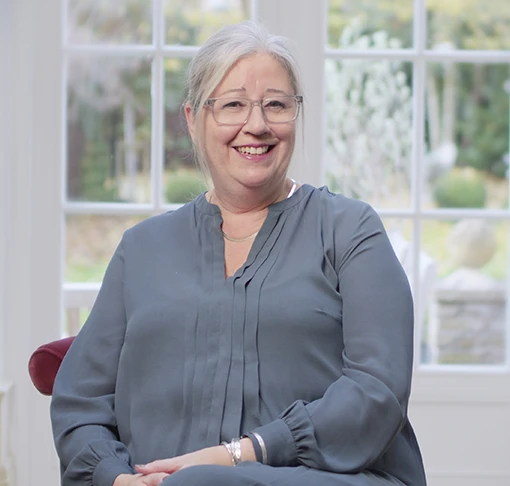- Life Coaching Diploma
The basis for all our training, our professionally accredited diploma - Corporate Coaching Programme
If you want to coach larger corporates and their teams - NLP Diploma Level 1
Our level 1 course designed to teach the fundamentals of NLP - NLP Practitioner Programme
Train to be an NLP pracitioner - Business Coaching Diploma
If you want to coach businesses and their leaders - Coaching within Education
Coaching for use in educational and childcare settings
- Free Introduction Webinars
Join us on one of our free webinars to find out more about our diplomas - DISC Personality Profiling
Explore our DISC workshops, training courses and resources - Coaching Conversations
Our monthly webinar series thats free to join - CPD & Workshops
We run regular CPD workshops covering a range of niche coaching areas - What is life coaching?
Find our more about life coaching, what it is, and how its used - Our Blogs & Articles
Insights, stories, articles and more - Coaching, counselling and mentoring
What is the difference between these three modalities - History of life coaching
The history of life coaching, and how it started - Life coaching accreditation
Is life coaching accredited, and why is it important
Policies & Ethics
The Coaching Academy Blog - 27 Dec 2022
5 Ways to Set New Year’s Resolutions in 2023 (and keep them)
It’s that time of year when we often focus on the future and what we would like to change or achieve. Setting New Year’s resolutions can be a seasonal gift that helps us step into the next year feeling confident in our choices and clear of our direction. Here are five ways to make your resolutions stick this year.
1. Don’t think of them as resolutions – think of them as goals
We can set New Year’s resolutions with the best intentions, but they are often forgotten by the end of January. This is partly because by calling them ‘New Year’s resolutions’, they have a degree of uncertainty already built into them due to the success rate we see around us or have experienced ourselves. New Year’s resolutions are often not followed through because we feel obliged to set them in the first place. Obligation is a difficult place to start from when we want to embrace change or strive for achievement. Instead, we should set them from a place of intention.
This year, instead of setting New Year’s resolutions, set New Year’s goals. Goals are achievable. Goals have a framework. Goals are set all year round through intention, not obligation. People around you, particularly in the coaching community, regularly achieve their goals. This is a starting place that brims with possibilities, and there is so much guidance on setting and achieving goals.
2. Make them SMART goals
There is a key to setting goals that we actually achieve. They should be SMART goals, encompassing the following five things: Specific, Measurable, Achievable, Realistic, and Time-bound.
We are Specific with our goals, so we know exactly what we are aiming for, ‘more balance’ won’t be sufficient, but ‘yoga every morning’ will. Measurable goals will let you know when you have completed them. Having Achievable goals is a healthy balance of being challenging but also within your reach. Realistic goals are ones that are within your reach and relevant to your life. Time-bound means adding a timescale to them, which usually includes a start and finish.
3. Use the new year as a vantage point
One of the reasons the New Year period is a special time is because it provides us with a chance to step away from the rhythms of daily life and take stock. We can pull our past experiences, current situation and future intentions into one place and assess them. When we look to the past, we can highlight our strengths, what we have done well, and the foundations we are building on. The present allows us to assess our current situation and the support we might have or hurdles we have to face. The future is where we want to be, and we have that clear vision of where we are journeying to in mind.
4. Break goals down into smaller ones or tasks
Goals are harder to achieve when a larger one hangs over us. We can lose motivation when something feels so far away it might never happen, or we lose confidence in ourselves if it appears outside our reach. A goal such as setting up a new business is vast, but when we shift our focus to a string of, say, ten smaller goals or tasks, we make it more achievable. We can also celebrate our milestones, which will help with motivation.
5. Revisit your goal throughout the year
Set a monthly reminder to check your progress and adjust your smaller goals or tasks. This is when you should draw on that energy you felt in the new year and use it to step up onto your vantage point. What has worked well since you set the goal? What are the current hurdles you are facing? What needs adjusting to achieve your goal? Revisiting your goal throughout the year keeps it present and prioritised. Once we build in that pattern or review and revise, it will help keep up momentum. Then, when the next new year comes around, you can build on all your achievements from the previous one.
Setting and achieving goals is at the heart of coaching. The benefit of setting goals, rather than New Year resolutions, is that they can begin any time of the year, and we don’t have to wait until January. To find out more about the many skills we teach to help achieve goals on our Life Coaching diploma, click here.
We wish you a very happy and rewarding new year!
Explore our free introduction webinars
We run a number of free webinars from our Introduction to Life Coaching, to sessions covering coaching niches. The next of each of these webinars is displayed below.



